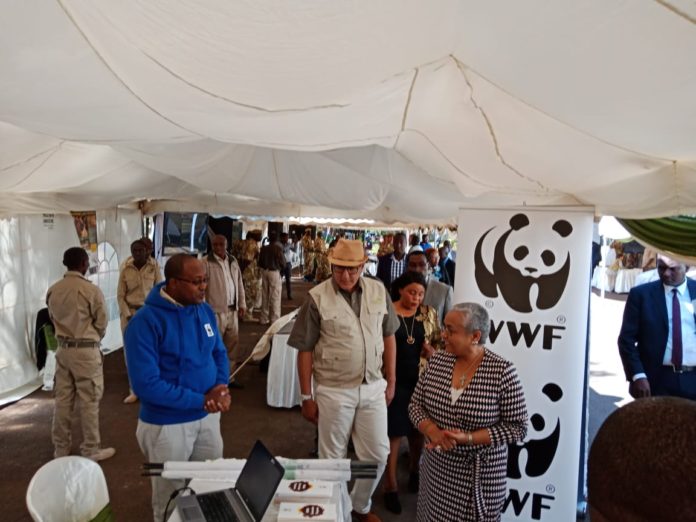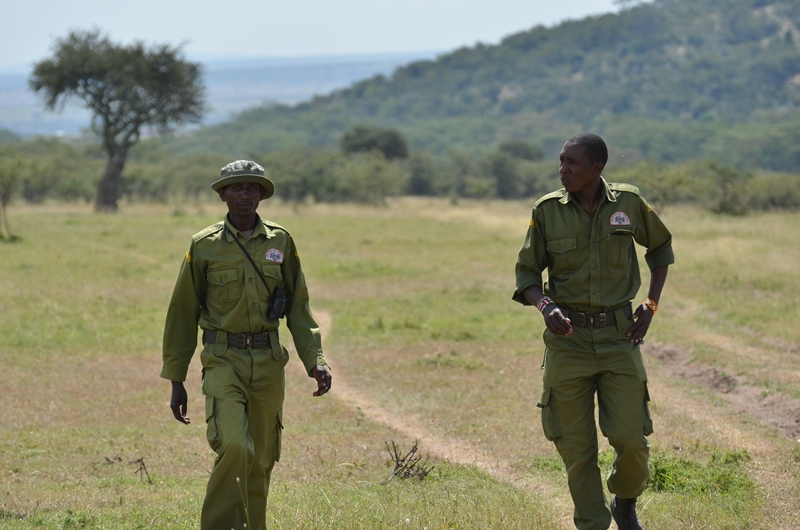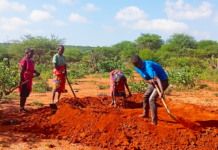
By Winnie Kamau
The Zero Poaching Strategy cannot be actualized without empowering rangers through increasing field staff capacity to protect wildlife.
This can be incorporated with conducting a regular effective assessment, use of the best technology and available tools, engaging local communities, improving approaches for prosecution and information sharing- nationally and regionally.
Although technology is crucial in fighting wildlife crime by rangers it will never replace them on the ground. The clarion call is needed for multi-stakeholder collaboration to get to zero-poaching.
Speaking during the annual Conservation Heroes Day event at the Kenya Wildlife Service headquarters in Nairobi, First Lady, Margaret Kenyatta called on the global community to commit and play their role in the road to zero poaching.
“The war on poaching will not be won if the countries that drive the demand for these products do not shut the markets. I call upon the international community to prevail upon the countries driving trophy demand globally to shut them down” Margaret Kenyatta – First Lady, Kenya
The day is celebrated every year on 16th December, to honour fallen rangers and the women and men who are the pillar upon which Kenya’s people and wildlife depend. In the last five years, Kenyan rangers have reduced elephant and rhino poaching by over 80%.
“Heroes Day is a bitter-sweet moment. Although it is a sad moment to remember our fallen heroes, it is also time to celebrate the selfless men and women who chose the noble path of sacrificing their own lives to protect people and the voiceless wildlife that we now enjoy as our heritage and treasure. We owe it to our gallant rangers.” Dr. Yussuf Wato – Program Species Manager, WWF-Kenya.

“Conservation heroes day is a sad reflection to the dark past to the relatives and staff as we remember our fallen heroes,” said John Waithaka Chairman, Kenya Wildlife Service.
Rangers work in some of the most remote and difficult places in Kenya to protect wildlife for the benefit of people, thus, the call for a better welfare and improved working conditions.
According to a recent Global Ranger survey, the average Kenyan ranger works more than 80 hours a week, yet 95% of them are proud to protect Kenya’s wildlife.
Over 90% of Kenya’s rangers believe that communities are essential in securing Kenya’s wildlife. Across the world, over 130 rangers have been killed protecting wildlife over the past 12 months. 5000 rangers across 17 countries in Africa and Asia, which included Kenya participated in the global ranger perception survey conducted by the World Wide Fund for Nature (WWF).
Wildlife driven tourism contributes approximately 120 billion shillings to Kenya’s economy every year, stakeholders across Kenya are being encouraged to priorities rangers welfare to ensure Kenya achieves its Sustainable Development Goals.
Wildlife is one of the key drivers of Kenya’s Vision 2030 and the Big 4 Agenda, without a dedicated ranger force we will not be able to achieve this. The need to invest in nature-based enterprises to reap sustainable benefits from Kenya’s wildlife heritage













